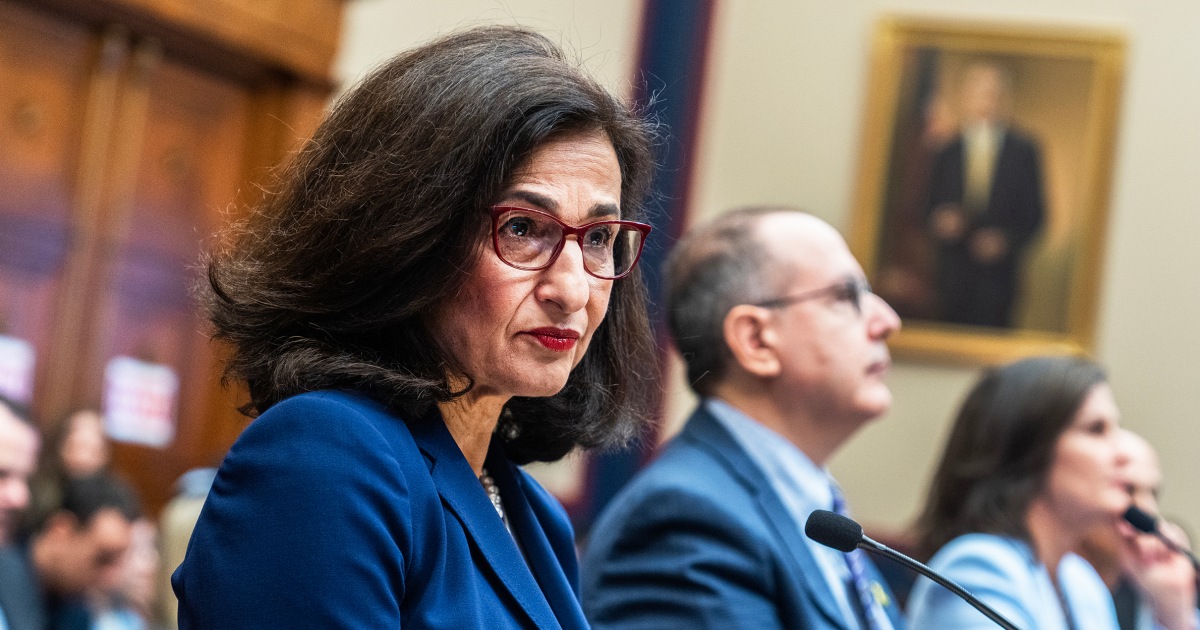British Prime Minister Keir Starmer has named Minouche Shafik, a former president of Columbia University, as his principal economic adviser, signaling a strategic reinforcement of his economic team ahead of a challenging fiscal period. The appointment comes as the government prepares for a budget that may include tax increases, amid tight financial constraints.
The move coincides with the transfer of Darren Jones, deputy to Finance Minister Rachel Reeves, into Starmer’s Downing Street office, indicating a desire for sharper economic guidance. Jones will be succeeded in his previous role by Labour MP James Murray, who previously held a junior position in the finance ministry, according to a statement from the Prime Minister’s office.
In a broader restructuring, Starmer has also replaced his principal private secretary and appointed a new director of communications, reflecting efforts to improve internal coordination and public messaging.
Starmer’s administration has faced internal criticism for failing to effectively communicate policy achievements and justify difficult decisions, contributing to declining public approval ratings over the past year.
The new appointments are expected to strengthen economic counsel ahead of a difficult budget cycle. Reeves is bound by fiscal rules aimed at balancing day-to-day spending with tax revenues by 2029, leaving little room for discretionary spending.
A Labour MP welcomed Jones’s appointment, praising his attention to detail and political acumen. “I think the creation of a role for Darren Jones is a good move,” the lawmaker said. “He’s clearly got an eye for the details but understands the politics too.”
Shafik brings extensive experience in economic governance. She served as deputy governor of the Bank of England for markets and banking from August 2014 to February 2017 before becoming vice chancellor of the London School of Economics. In 2023, she assumed the presidency of Columbia University but stepped down after just over a year amid controversy over the institution’s response to student protests related to the conflict in Gaza.
Earlier in her career, Shafik held senior roles in the UK’s foreign aid department and served as deputy managing director at the International Monetary Fund, where she oversaw operations in Europe and the Middle East during the eurozone crisis and the Arab Spring.
Starmer’s office stated that Shafik’s expertise would help the government accelerate economic growth and improve living standards. “This role and the additional expertise will support the government to go further and faster in driving economic growth and raising living standards for all,” the statement read.
Born in Egypt and raised in the southern United States, Shafik earned a doctorate in economics from the University of Oxford. She is also a non-partisan member of the House of Lords.
In a 2021 publication, she advocated for policies combining income guarantees with work incentives, pensions adjusted for life expectancy, and early childhood interventions to promote equal opportunity.
— news from NBC News
— News Original —
U.K.’s Starmer names ex-Columbia University president as top economic adviser
British Prime Minister Keir Starmer has appointed Minouche Shafik, a former Columbia University president, as his chief economic adviser, part of efforts to bolster his team before what is set to be a difficult end to the year. n nShafik’s appointment and a move to bring Darren Jones, finance minister Rachel Reeves’ deputy, to his Downing Street office indicate that Starmer believes he needs better economic advice before a budget later this year that is expected to include further tax rises. n nJones will be replaced by Labour lawmaker James Murray, who held a more junior role in the finance ministry, Starmer’s office said in a statement. n nIn a wider shake-up of Downing Street operations, Starmer also replaced his principal private secretary, who runs his team’s office, and appointed a new director of communications. n nAfter more than a year in power, Starmer’s team has been criticized by some in his party for failing to sell his government’s sometimes difficult policy decisions and champion its successes, as Labour’s poll ratings have slumped. n nThe new appointments may strengthen the economic advice Starmer receives before a tricky budget for Reeves, who has little room to manoeuvre after sticking to her so-called fiscal rules with the aim of balancing day-to-day spending with tax revenue by 2029. n n“I think the creation of a role for Darren Jones is a good move,” said one Labour lawmaker. “He’s clearly got an eye for the details but understands the politics too.” n nShafik to bring additional expertise n nShafik was the Bank of England ‘s deputy governor for markets and banking between August 2014 and February 2017, before leaving midway through her term to become vice chancellor of the London School of Economics. n nIn 2023, she became president of New York ‘s Columbia University, but quit after little more than a year when the university ‘s handling of months of student protests over Israel ‘s war in Gaza drew criticism from both sides. n nEarlier in her career, Shafik was the top civil servant in Britain ‘s foreign aid ministry and subsequently deputy managing director at the International Monetary Fund, where she oversaw the IMF ‘s work in Europe and the Middle East during the euro zone debt crisis and the Arab Spring. n n”This role and the additional expertise will support the government to go further and faster in driving economic growth and raising living standards for all,” Starmer ‘s office said. n nShafik, who is also a non-partisan member of parliament ‘s upper chamber, the House of Lords, was born in Egypt and grew up in the southern United States, before completing a doctorate in economics at the University of Oxford. n nIn a 2021 book, she called for policies that combined income floors with incentives to work, pensions linked to life expectancy, and interventions in early childhood to equalize opportunity.
